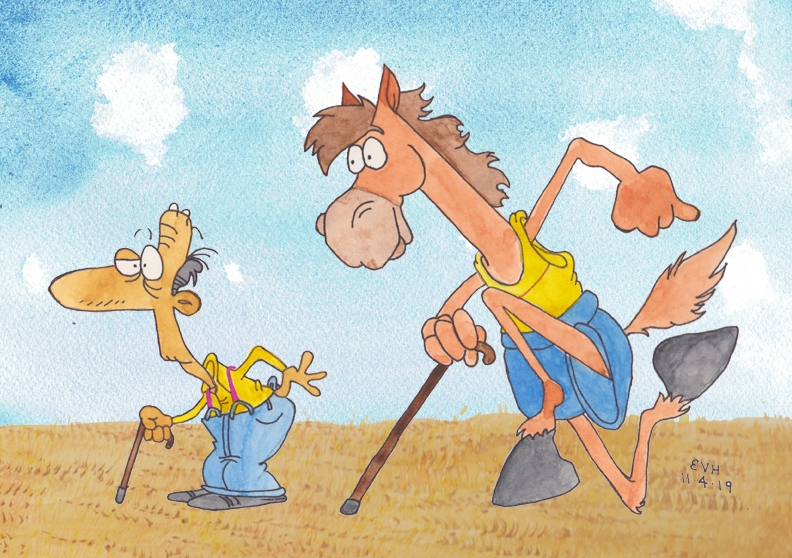
Jataka 184
Giridanta Jātaka
The Story of Giridanta
as told by Eric Van Horn
originally translated by William Henry Denham Rouse, Cambridge University
originally edited by Professor Edward Byles Cowell, Cambridge University
This is another story that beats up on Devadatta, but you can’t help feeling a little compassion for the poor, gimpy horse trainer.
This is another story where the theme is the danger of having the wrong kind of companionship. Our “friends” can talk us into doing all kinds of stupid things that we would never do otherwise. We are like gardens. Some people water the flowers in us; others water the weeds.
“Thanks to the horse trainer.” The Master told this story while he was staying in Veḷuvana Park (the Bamboo Grove Monastery). It is about keeping bad company. The circumstances have already been recounted in the Mahilāmukha Jātaka (Jātaka 26). Again, as before, the Master said, “In former days this monk kept bad company just as he does now.” Then he told this story from the past.
Once upon a time, there was a King named “Sāma the Black.” He reigned in Benares. In those days the Bodhisatta was a member of a courtier’s family. He grew up to be the King’s advisor in all things worldly and spiritual.
Now the King had a horse of state named “Paṇḍava.” His trainer was a man named “Giridanta.” Giridanta was a lame man. The horse used to watch him as he limped about holding the halter. Knowing that Giridanta was his trainer, the horse imitated him and limped too.
Somebody told the King that the horse was limping. The King sent doctors to examine the horse, but they declared him to be perfectly sound physically. Then the King sent for the Bodhisatta. “Go, friend,” he said, “and find out what is going on.”
He soon found out that the horse was lame because he was imitating the lame trainer. So he told the King what was going on. “It’s a case of bad company,” he said, and went on to repeat the first stanza:
“Thanks to the groom, poor Paṇḍava is in an unsafe state.
No more displays his former ways, but needs must imitate.”
“Well, now, my friend,” said the King, “what’s to be done?”
“Get a new horse trainer,” the Bodhisatta replied, “and the horse will be as good as ever.” Then he repeated the second stanza:
“Find but a fit and proper groom, on whom you can depend,
To bridle him and exercise, the horse will quickly mend.
His sorry plight will be set right; he imitates his friend.”

Figure: Be Careful Who You Imitate!
So this is what the King did. The horse became as good as before. The King showed great honor to the Bodhisatta, being pleased that he knew even the ways of animals.
When the Master finished this discourse, he identified the birth: “In those days Nanda was the elephant, Ānanda was the King, and I was the trainer.”
